Major Power Relations
Your Present Location: PROGRAMS> Major Power Relations-

He Yafei: Great-Power Awareness of Crisis and Tragic Sensibility
American scholars have recently trumpeted a geopolitical “tragic sensibility.” They believe that the United States has been reluctant to squarely face the challenges posed by China and Russia – a result of the loss of its tragic sensibility and awareness of crisis needed to create a collective sense of responsibility and take decisive action.The so-called tragic sensibility originates from the obsession and reflection of tragedies in ancient Greece.
2019-10-11 -

Danilo Türk: A scent of the Cold War
Recent news about the proposed closure of a number of Confucius Institutes in the U.S. and Australia carries an unpleasant scent of a negative political attitude towards China. This change of attitude deserves attention and concern. For years now the Confucius institutes have played a very useful role of providing opportunities for learning Chinese, for cultural exchanges and general communication with China, much needed in our time.
2019-10-11 -
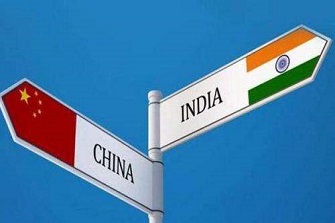
Liu Zongyi: China-India bid can forge united Asia
Chinese President Xi Jinping and Indian Prime Minister Narendra Modi are slated to hold the second informal meeting in the South Indian coastal town of Mamallapuram in Tamil Nadu later this week after the two leaders held an informal summit in Wuhan in April 2018, according to Indian media reports. Mamallapuram is a UNESCO world heritage site recognized for being the home to exquisite Hindu statues and stone-carved temples belonging to the Pallava Dynasty.
2019-10-09 -
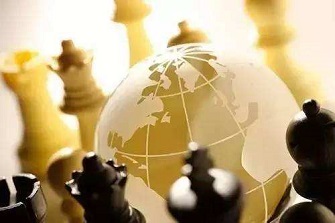
Zhao Minghao: No need to overreact as Quad ups gear
The Quadrilateral Security Dialogue - known as Quad - between the US, Japan, India and Australia was held Thursday on the sidelines of the UN General Assembly at the foreign minister's level. Since its revival in November 2017, the Quad had met only at the joint-secretary level. This first foreign-minister-level meeting may suggest that the framework is upgrading. Speculation is swirling on whether it would move toward a NATO-like group in Asia.
2019-09-30 -

China responds to US goodwill gesture with purchase of farm goods
China has moved swiftly in responding to the latest goodwill gesture from the US by encouraging Chinese companies to buy a "certain amount of" US soybeans, pork and other products, as part of an effort by both sides to create positive vibes for ongoing trade negotiations. While the exchange of goodwill gestures injects fresh momentum into the talks, uncertainty remains about whether the two economic powers can reach a deal in upcoming meetings and end the costly trade war. The ball is in Washington's court, Chinese analysts noted on Wednesday.
2019-09-29 -
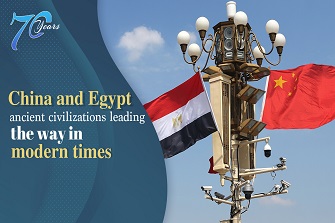
Hisham El-Zimaity: China and Egypt – ancient civilizations leading the way in modern times
To mark the PRC's 70th founding anniversary, CGTN has introduced a special series "70 Years through Foreigners' Eyes." In the fourth episode, Hisham El-Zimaity, former Assistant Foreign Minister of Egypt and Non-Resident Senior Fellow at Chongyang Institute for Financial Studies, Renmin University of China, shared his views on lessons from China's rapid development and Egypt's relationship with China.
2019-09-27 -

Jean-Guy Carrier: China-Canada ties, A forerunner of China's relationship to the West
To mark the PRC's 70th founding anniversary, CGTN has introduced a special series "70 Years through Foreigners' Eyes." In the third episode, Jean-Guy Carrier, non-resident senior fellow of Chongyang Institute for Financial Studies, Renmin University of China (RDCY); executive chairman, Silk Road Chamber of International Commerce (SRCIC) , shares his views on Canada's historic relations with China.
2019-09-27 -
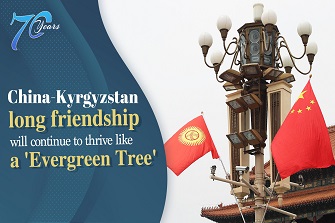
Djoomart Otorbaev: China-Kyrgyzstan long friendship will continue to thrive like an 'Evergreen Tree'
To mark the PRC's 70th founding anniversary, CGTN has introduced a special series "70 Years through Foreigners' Eyes." In the second episode, Djoomart Otorbaev, former Prime Minister of the Kyrgyz Republic and non-resident senior fellow at the Chongyang Institute for Financial Studies, Renmin University of China, shared his views on China's achievement in the past seven decades and Kyrgyzstan’s future relationship with China.
2019-09-26 -
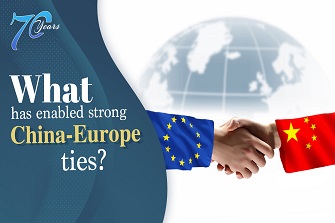
Antonio Villafranca: What has enabled strong China-Europe ties?
China's skyrocketing economy is the result of policies embraced by its leaders and of the strong will of its people. However, these alone would not be enough to enable China's economic miracle. China's success is also made possible by the country integrating itself into the international economy, the system inaugurated by western countries after the Second World War and out of which China emerged as a flourishing major world power.
2019-09-25 -
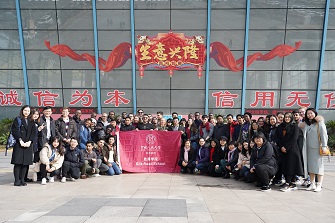
Wang Wen on Changing World 19: Small cities offer better insight into China
On August 20, 2019, Wang Wen, Executive Dean of Chongyang Institute for Financial Studies at Renmin University of China (RDCY), opened the new column “Wang Wen on Changing World” in Global Times (English edition). Following is the list of all articles.
2019-09-04 -
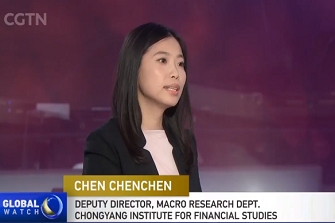
Chen Chenchen: Chinese tech companies are prepared for blacklists and tariffs
China has been working to innovate more in the face of the trade war, how close is China to its goal of reducing dependence on the U.S. in terms of technology? Chen Chenchen shared her insight.
2019-09-03 -
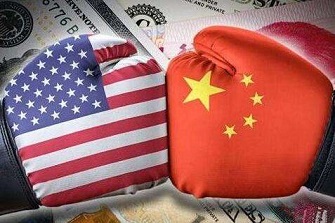
Zhao Suisheng: China-US new cold war can be avoided
The China-US trade war, the stagnation and ups and downs of trade negotiations between the two major global powers have gained a lot of attention. The trade dispute between China and the US is after all a geopolitical and geostrategic contest. China-US relations are experiencing unprecedented and dramatic changes that have not been seen in the past 40 years since ties were established. But it is possible that China and the US can prevent from falling into the trap of the conflict between big powers, and both of the two countries should strengthen cooperation, understanding and exchanges between them to avoid entering the new cold war."
2019-09-02 -
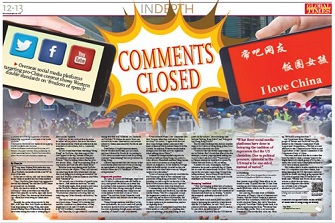
Overseas social media targeting pro-China content shows Western double standards on ‘freedom of speech’
Online posts showing support for China have been widely suppressed on overseas social media platforms. Companies like Twitter and Facebook are applying double standards over the issue. When the Western world criticizes China, they call it "freedom of speech," but when China speaks back, it is called suppressing freedom. Freedom has become their patent. This is "autocratic liberalism," experts say.
2019-08-30 -
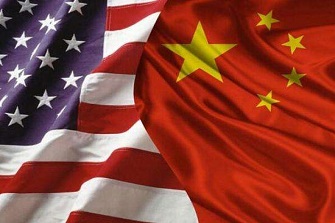
Zhao Minghao:Is a New Cold War Inevitable? Chinese Perspectives on US–China Strategic Competition
In recent years, Chinese scholars and policy elites have discussed the ever intensifying strategic competition between the United States and China and its multifaceted implications for Chinese foreign policy. Some even worry about the possibility of a new Cold War between the United States and China. This article aims to offer an analysis of Chinese perspectives on US–China strategic competition. In the view of most Chinese observers, US–China strategic competition is inevitable because China is closing the national power gap between itself and the United States, while the latter resolutely upholds its global primacy. Other factors, including ideological disagreements, may fuel the major power competition that has extended to most aspects of US–China relations. Chinese observers believe that economic and technological rivalry between the United States and China has heightened and that the Western Pacific is the focal point of US–China strategic competition. Meanwhile, certain Chinese s
2019-08-29 -

Zhao Minghao: Trump administration's 'ostrich mentality' towards the trade war
the White House's chaotic decision-making process is out in the open. The U.S., China and the entire world economy have to pay a huge price for it. The Trump administration needs to own its mistakes and return to the negotiation table with sincerity as soon as possible. This is the only right path to go down.
2019-08-28 -
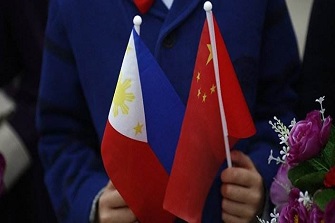
Beijing and Manila can be closer friends
Philippine President Rodrigo Duterte begins his five-day visit to China on Wednesday, the fifth since he took office in June 2016. During his visit, the two sides are also expected to discuss many issues. Two experts, Song Wei and Wang Yiwei, share their views on Duterte's visit and Sino-Philippine ties.
2019-08-28 -
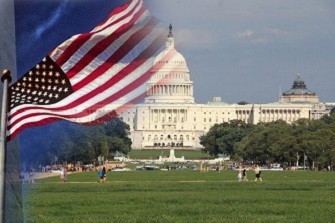
Liu Zhiqin: The US needs to redefine its role in the world
What will the world be like without the US? So far no think tank has touched this topic and no one has been seriously considering it. However, it is a question which calls for attention and in-depth study. It will be a big challenge, but one that is unavoidable.In fact, what the world needs is a new US - a country without prejudice and ruthlessness, a country that consistently acts on its word, and a country that respects others. The world will be fortunate if the US can become this country.
2019-08-27 -
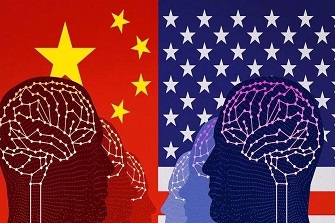
Zhao Minghao: US approach to Hong Kong problem puts trade negotiations in trouble
Recently, US officials, including President Donald Trump, Vice President Mike Pence and Secretary of State Mike Pompeo have commented on the Hong Kong situation on different occasions. Trump warned China on August 18 that violent crackdown on the protests in Hong Kong would harm trade talks with the US. Expected to be held in September, the 13th round of China-US trade talks is still subject to uncertainty. If the US continues to step up its interference in the Hong Kong affairs, it would become more difficult to reach an agreement between the two countries to end the trade war.
2019-08-26 -
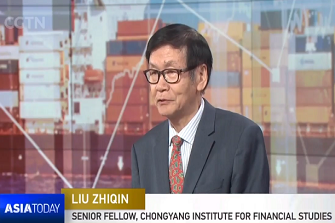
Trump jacks up tariffs on Chinese imports in latest tit-for-tat move
China imposes new tariffs on $75 billion in U.S. imports, which is considered a retaliatory countermeasure from Beijing. This is following U.S. President Donald Trump's announcement of a 10-percent tariff on 300 billion dollars' worth of Chinese goods. Liu Zhiqin, a senior fellow at Chongyang Institute for Financial Studies, said the tariff war will not make America richer and America has to realize how it is hurting the world economy.
2019-08-26 -
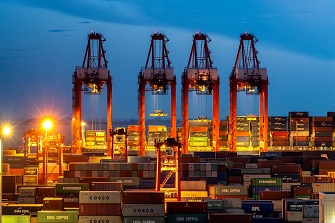
U.S. may not be the beneficiary of its own tariff hikes
The U.S.' latest move of levying another 10 percent tariff on Chinese goods has triggered a quick response from China. Leading Chinese scholars on Friday gathered at a panel discussion in Beijing to discuss the impact of the U.S. tariffs. Some experts argued the U.S. may not be the beneficiary of its own tariff hikes as it claims.
2019-08-23
























































































 京公网安备 11010802037854号
京公网安备 11010802037854号





